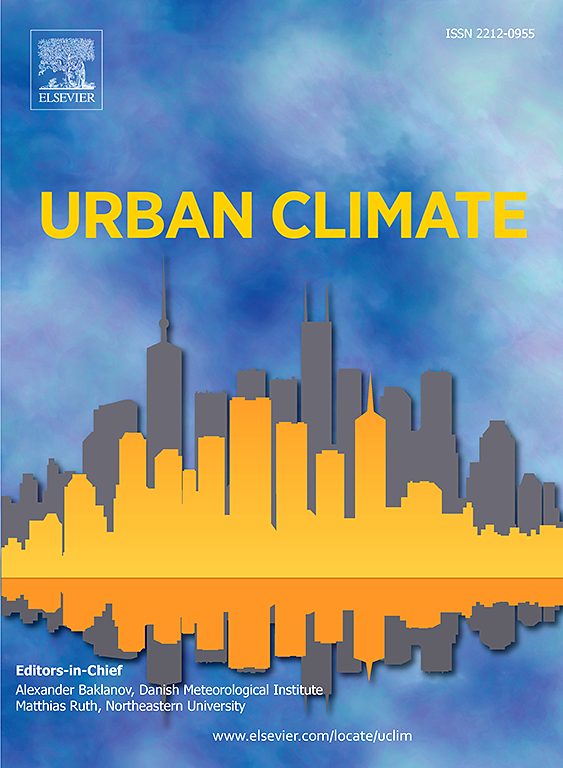Optimization of green space in high-density built-up areas based on cooling simulations: A case study in Xi'an, China
IF 6
2区 工程技术
Q1 ENVIRONMENTAL SCIENCES
引用次数: 0
Abstract
The role of green space (GS) in mitigating the urban heat island (UHI) effect is well-recognized. However, practical research on GS optimization in high-density built-up areas, where land resources are scarce, remains limited. This study proposes a GS optimization method specifically designed for such areas, utilizing cooling simulations to establish a complete and feasible workflow. High-resolution remote sensing is employed to identify potential renewal parcels, with potential grading leading to various GS optimization scenarios. Cooling simulations and quantitative analysis at unit and block scales, conducted using the InVEST Urban Cooling Model (UCM) and ArcGIS, inform targeted GS strategies. A case study in Xi'an demonstrates the practical applicability of this approach, revealing temperature reductions of 0.25 %, 1.53 %, and 2.29 % as parcels progress from first- to third-level renewal. As a result, 40 %, 60 %, and 70 % of blocks experience effective UHI mitigation. The study further proposes GS optimization from both time-series and spatial strategies, enhancing the scientific accuracy and practical feasibility of GS strategies. This method offers a robust reference for GS construction in other high-density built-up areas facing ecological and land resource challenges where the UHI effect is significant.基于降温模拟的高密度建成区绿地优化——以西安为例
绿地在缓解城市热岛效应中的作用已得到广泛认可。然而,高密度建成区土地资源稀缺,GS优化的实践研究仍然有限。本研究提出了一种专门针对此类区域的GS优化方法,利用冷却模拟来建立一个完整可行的工作流程。利用高分辨率遥感识别潜在的更新地块,并对潜在的分级进行各种GS优化方案。利用InVEST Urban Cooling Model (UCM)和ArcGIS在单位和块尺度上进行冷却模拟和定量分析,为有针对性的GS策略提供信息。西安的一个案例研究证明了该方法的实用性,发现当地块从一级更新到三级更新时,温度降低了0.25%、1.53%和2.29%。因此,40%、60%和70%的区块有效缓解了热岛问题。进一步从时间序列和空间策略两方面提出了地磁优化策略,提高了地磁优化策略的科学准确性和实践可行性。该方法可为其他高密度建成区面临生态和土地资源挑战、热岛效应显著的GS建设提供有力参考。
本文章由计算机程序翻译,如有差异,请以英文原文为准。
求助全文
约1分钟内获得全文
求助全文
来源期刊

Urban Climate
Social Sciences-Urban Studies
CiteScore
9.70
自引率
9.40%
发文量
286
期刊介绍:
Urban Climate serves the scientific and decision making communities with the publication of research on theory, science and applications relevant to understanding urban climatic conditions and change in relation to their geography and to demographic, socioeconomic, institutional, technological and environmental dynamics and global change. Targeted towards both disciplinary and interdisciplinary audiences, this journal publishes original research papers, comprehensive review articles, book reviews, and short communications on topics including, but not limited to, the following:
Urban meteorology and climate[...]
Urban environmental pollution[...]
Adaptation to global change[...]
Urban economic and social issues[...]
Research Approaches[...]
 求助内容:
求助内容: 应助结果提醒方式:
应助结果提醒方式:


